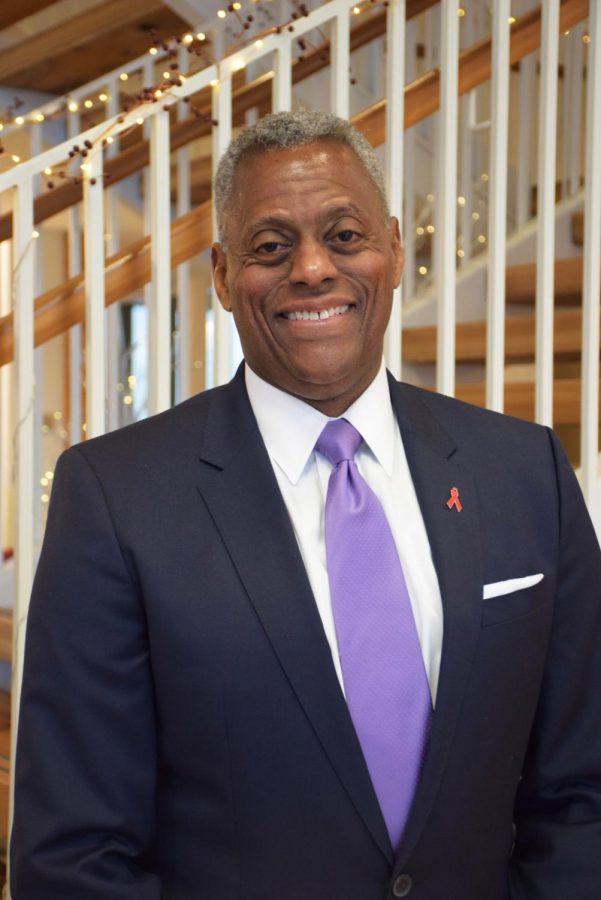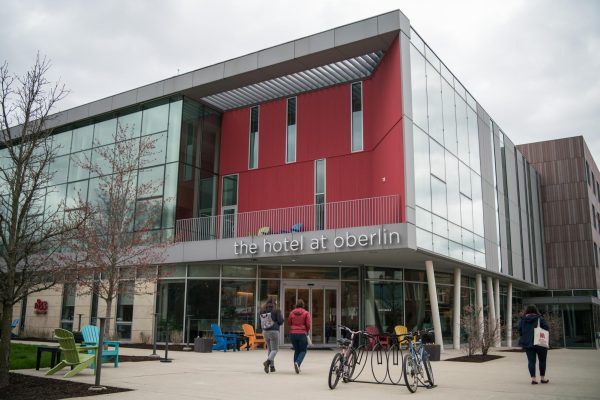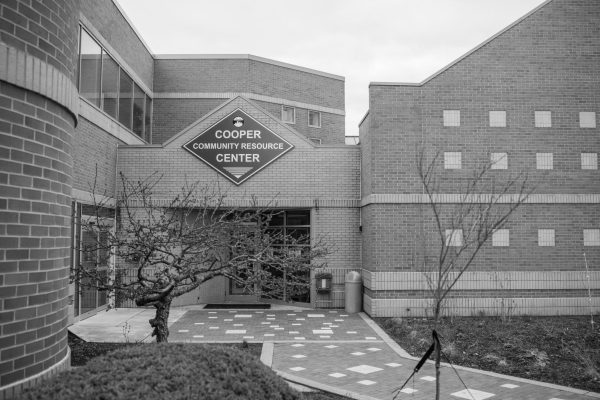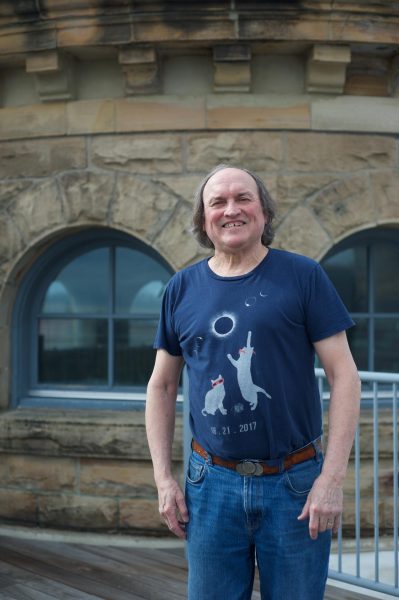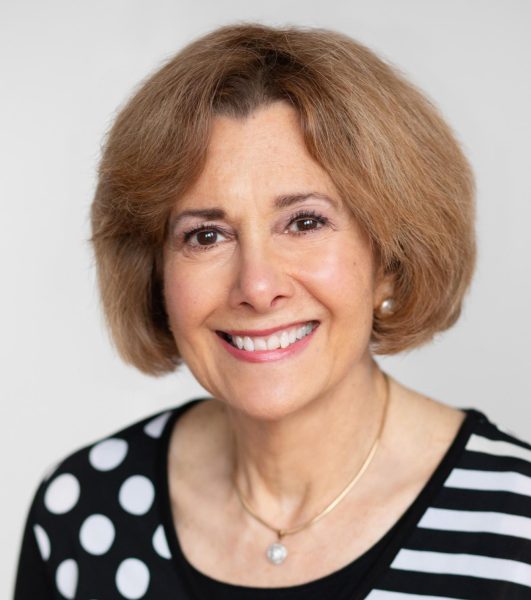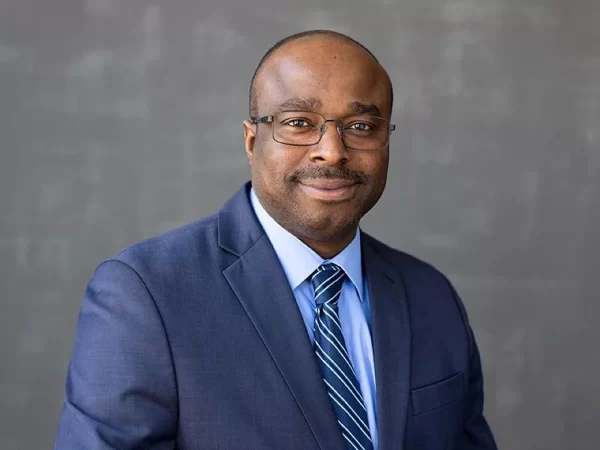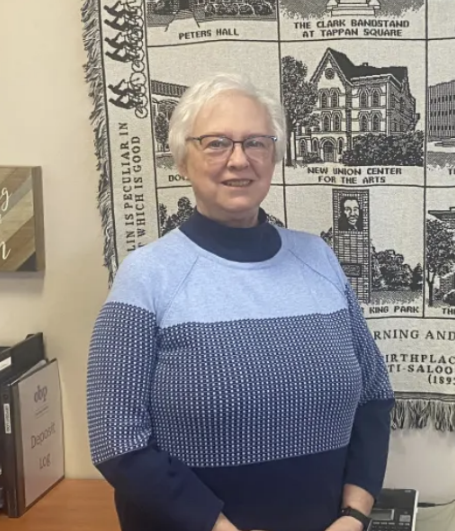Jesse Milan, Jr., AIDS Activist
Jesse Milan Jr.
Jesse Milan Jr. is the president and CEO of AIDS United, an organization dedicated to fighting the AIDS epidemic in the United States. He delivered a convocation address Tuesday titled “You are the Keeper of the HIV Movement,” which discussed the ways young people can engage in the HIV/AIDs movement. Milan has lived with HIV for 35 years and has been involved with activism in the public health sector for over 30 years. A lawyer by training, he currently serves on the Scientific Advisory Board for the President’s Emergency Plan for AIDS Relief as well as numerous boards and committees around the country promoting awareness and funding for HIV and sexually transmitted diseases prevention and treatment.
This interview has been edited for length and clarity.
Sydney Allen, Editor-in-Chief
Maranda Philips, Staff Writer
Can you tell me a little bit about your background and career trajectory?
So I grew up in Kansas, and my family was very involved in civil rights. My father was the first African-American public school teacher in a major city in Kansas, and he was hired the same year as Brown v. Board of Education. Through that expertise — it was the same time that my late partner died, and so it was both a personal and professional calling for me — I had the opportunity to be on the board of a local AIDS service organization that grew to be the largest in the state. That’s where I met my husband, and we just celebrated our 30th anniversary. As that opportunity continued to grow, I kept feeling this calling to do more. Suddenly, I was involved in more boards, including the National Episcopal AIDS Coalition that I was president for. When I was asked by a health commission and mayor to be the AIDS director for the city of Philadelphia, it took my role to a whole new level. I was responsible for the prevention, treatment, and care for the sixth largest city in the country. That regional opportunity made it possible for me to move on to national work. Then I was asked to take on national work and moved to the Washington area. National work gave me the opportunity to do global work, and I’ve always accepted those opportunities because the work is so important.
Can you talk a little bit about what it was like as a lawyer, specifically working with employers and other groups, trying to navigate HIV/AIDS?
I found that there was always a thirst to know what were the rights and responsibilities for both the employer and for the employee. People never wanted to do something wrong and never wanted to hurt anyone — and that could be not only hurting the person living with HIV, but there was a concern also about hurting customers and other patients. People just wanted to know what the pathway was, so I was often partnered in the work that I did with the AIDS Education Training Center to help doctors and physicians, to help the police officers and firemen understand how the disease actually works. And that the risk to them, the risk to the people they were serving was essentially non-existent because this is a sexually transmitted disease. Once people understood the facts about how HIV works, you’d be surprised how often the “ah-ha” arrived. Then it all started to make sense — the discrimination was actually the wrong answer.
How was that for you? Working for people who sometimes came in with really homophobic and harmful beliefs?
What’s always impressed me is that people really do want to do the right thing, but if they don’t have the information then they are operating out of ignorance. As people became enlightened with the information, they had to do a sense of self-reflection. Around, “well, I may not necessarily approve of everything that person does, but now I understand that they are not necessarily putting me at risk.” And that’s at least a step in the right direction. Over the years that we’ve had loss and more loss and more loss, I’m finding that more and more people are willing to be out and open about how HIV has actually touched their lives and also how they’ve understood the common humanity across genders, sexual orientation, across race. When people have the opportunity to find the true commonality of experience, that’s where change happens.
Can you discuss what the work that AIDS United does? And what that organization’s mission is?
I’m very thrilled to be leading AIDS United; it’s a great organization. We have three main pillars of work. One is grant-making; we’re a national grant maker that supports and engages and activates HIV organizations across the country. This last year, we gave away about $8.5 million, and we have about 215 grantees across the countries in 36 states. We continue to do policy work, so we’re a leading policy advocate for HIV procreations and policies with Congress and with the administration, and through our partners and our grantees we help support policy advocacy at state and regional levels as well. And then we continue to do capacity buildings, helping HIV/AIDS organizations do better at what they do by giving them the best practices and tools to continue to do their work.
What programming is AIDS United is doing for World AIDS Day, Dec. 1?
For World AIDS Day we are releasing a paper called “Ending the Epidemic in America: A Roadmap for Federal Action.” AIDS United and our partners across the country have been working for over a year on paving this roadmap that the federal government can use for what the national HIV strategy and what the federal commitment should look like for 2020 beyond to get us to actually end this epidemic.The new head of the CDC has said that with the right resources, we can end this epidemic in seven years. No new infections, no more deaths, wouldn’t that be amazing? But only if we have the right strategies and the right resources. So this paper is being released this week. We’re also releasing a paper on safer consumption sites, which are very innovative, where people who are addicted to injection drug use can go and in safety not only have needle exchanges but, if necessary, perform their injections. But those sites would also connect those participants to public health resources, to mental health services, to possibly begin on a road to recovery. So this paper is on the impact and efficacy of a separate consumption service. So those are the things we’re doing for World AIDS Day besides speaking in four different states in nine days.
Can you talk a little bit about the way young people can engage in the struggle today versus 20, 30 years ago?
Today’s generation stands on this legacy of HIV. But it’s not that different in terms of other historical traumas that have informed who we are as people and citizens today. The traumas of lynching, the traumas of slavery, the traumas of the Holocaust, the traumas of sexual abuse — what is your pathway today into moving social justice and human rights forward? Your entry point today can be many different places, but the HIV epidemic can still be that entry point for you. Even though you may not have personally experienced a loss, you have a personal commitment that there’ll never be another one. That there’s still great health inequity, and there is still social justice. So when we look at the HIV movement and we look at those people and populations that are heavily impacted by HIV, particularly disproportionately impacted, if you’re concerned about racial justice, HIV is still a pathway for you. If you’re concerned about women’s health, if you’re concerned about women being treated fairly, HIV can still be a pathway for you. If you’re concerned about discrimination and housing and employment, HIV is still a pathway for your opportunities. So whether you’re going to be a lawyer, a public health official, a doctor, a social worker, or just an informed citizen, there are still ways that the HIV movement can be relevant for you today.
So obviously you’ve been doing this for quite a long time. I want to ask how different changes in national administration affect the work you do?
President Trump actually proposed cutting some aspects of HIV prevention, treatment, and care budgets. So we’ve had to fight that in Congress so that those funds were not actually cut. We’ve had to fight for some expansions, and this year one of the great successes was new funding for the housing opportunities for people with AIDS, or the [Housing Opportunities for Persons with AIDS] program. That was a great success.
President Obama committed to having our first national HIV/AIDS strategy. All of the countries that receive our money through PEPFAR [President’s Emergency Plan for AIDS Relief] have been required to have their own national plans and how they will hit new targets for getting more people into prevention, more people into treatment, reduce new infections, etc. We never had that in the United States until the Obama administration. So we were watchful whether President Trump would continue the national HIV/AIDS strategy, and it still exists. We’re still on the targets for getting to 90 percent of people knowing their status, 90 percent of people on treatment. That goal which was set in the national HIV/AIDS strategy is still our national goal by 2020. So we’re still moving forward. What is wonderful is Congress has quite a bipartisan appreciation for the Ryan White Care Act and bipartisan appreciation for HOPWA, and even a bipartisan appreciation for prevention funding at the [Centers for Disease Control]. What we’re finding is that as we ask those partners to stop up on both sides of the aisle, they’re willing to do so, but even they require ongoing education about the intersection of the HIV and the opioid epidemic, about the intersection of HIV and the epidemic of sexually transmitted diseases, and about the importance of medicated expansion.
What would you say are the biggest obstacles right now to achieving the goal for 2020?
Well ya know, I’ve been living with HIV for 36 years, and getting into care and having providers who understand what you’re dealing with to help you stay in care, having a support system around you that supports you to be as healthy as possible — those are the pathways forward. We also need to continue doing our advocacy, make sure that people can get into care. There are too many states where Medicaid has not been expanded. Too many people that are afraid to even know their status because the stigma is so great, and the more that we all need to know, everything about our health in HIV is just one more piece, and if you know that you’re positive, having that access to care; if you know that you’re negative, making sure that you do your job to stay negative and to support those who are positive.
One theme I noticed through both your convocation speech and this interview is that you mention loss a lot and how painful that can be. Can you talk about how you’ve navigated such heavy feelings?
Having the support of family and friends makes it possible for any of us to navigate the serious thoughts. I’m sorry for those who don’t have those. I always encourage them to go find it, because that support — whether it’s your family, whether it’s your friends, or both — can get you through navigating that loss and wearing that not as a heavy burden, but as a part of your history that carries you for the rest of who you are today. A spiritual community can be helpful in that too. It may not be for everyone, but it could be for you.
What are some tangible ways that young people who might not be as familiar with the social world can get involved and make a difference in this field?
Someone asked me the very same question today, and I gave her a bilateral pathway. On the one hand, Oberlin is a great incubator for great social justice; if you have an interest, there are a variety of places right here on campus where you can get involved. But it’s also helpful if you actually think about the opportunities in your hometown, in your home state, and I gave this student a couple of names that I knew in her home state and whether those opportunities occur during the summer, during vacations, now — you’re an enlightened citizen. Go home and find that place where you can make a difference, [because] I assure you there is a need.
What would you say to young people who are struggling with coping with this issue or debating whether not to get tested?
To any young person that is struggling to get tested, my message to you is: take control of your health. My message to any young person who has just learned that they are HIV positive, is take control of your health and find anyone and everyone that are there to support you, to stay healthy.


